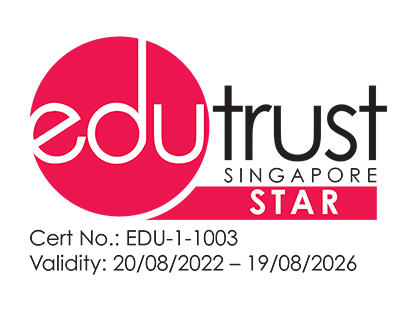Graduate Diploma, Bachelor’s Degree, Master’s Degree: Which is Right for Me?

Choosing the right educational pathway can be a challenging decision for anyone looking to gain knowledge, skills, and qualifications to advance in their field of choice. From Bachelor's Degrees to Graduate Diplomas and Master's Degrees, each level of education offers unique benefits and opportunities.
Whether you are a recent high school graduate or a working professional looking to advance your career, understanding the key differences between these programmes is essential to making informed decisions about your education and career goals.
In this article, we will explore the differences between Graduate Diploma, Bachelor's Degree, and Master's Degree programmes, focusing on key factors such as programme length, coursework, career opportunities, cost, earning potential, and qualifications.
Graduate Diploma
Graduate Diploma programmes are typically designed for students who have already completed an undergraduate degree or have significant work experience in a particular field. These programmes provide an opportunity for young professionals to gain specialised knowledge and skills in a specific area without committing to a Master's Degree programme.
Here are some key differences between Graduate Diploma programmes and other degree programmes:
- Length of programme: Graduate Diploma programmes generally take a shorter time to complete, with programme lengths ranging from 8 months to under 2 years. They are designed to provide a focused education in a specific area rather than a broad-based education.
- Coursework and curriculum: Focusing on developing advanced skill sets and knowledge in a specific area of study, the coursework may be more specialised than other programmes.
- Career opportunities: While a Graduate Diploma may not be as comprehensive as a Master's Degree, it still provides rich opportunities for career advancement or entry into a new field. A Graduate Diploma will provide you with a competitive edge in the job market by enhancing your existing skills.
- Cost: While the cost may vary depending on the institution, Graduate Diploma programmes are generally less expensive than Master's Degree programmes. Since Graduate Diploma programmes are shorter in duration, you can save on tuition fees and other study-related costs and expenses.
- Earning potential: Earning potential can vary depending on your field of study and the level of education undertaken. A Graduate Diploma can provide specialised knowledge and skills that companies specify for, giving you a career edge.
- Qualifications: A Graduate Diploma is a recognised qualification that demonstrates a student's expertise in a specific area of study. It can be a valuable addition to a resume and can help to distinguish a candidate from others in the job market.
Bachelor’s Degree
Bachelor's Degree programmes are for young adults who have completed their high school education or equivalent, and are looking to pursue higher education in a particular field. These programmes provide a comprehensive education in a specific area of study, with a focus on developing broad-based knowledge and transferable skills.
- Length of programme: Bachelor's Degree programmes typically take four years to complete. Some programmes may take longer or shorter, depending on the field of study. A Bachelor’s Degree is designed to provide a broad-based education in a specific area of study, with a focus on developing transferable skills that can be applied to a range of careers.
- Coursework and curriculum: Coursework may be more diverse than that of a Graduate Diploma or a Master's Degree programme. For example, a Bachelor's Degree in Psychology may include courses on human development, abnormal psychology, and social psychology, while a Graduate Diploma in Psychology may focus more specifically on cognitive psychology or counselling.
- Career opportunities: A Bachelor's Degree is typically the minimum educational requirement for many professional careers. Graduates of Bachelor's Degree programmes may be qualified for entry-level positions in their field of study, or they may choose to pursue further education in the form of a Graduate Diploma or a Master's Degree.
- Cost: Bachelor's Degree programmes can be costly most of the time. However, financial aid and scholarships are often available to help students cover the cost of tuition and other expenses.
- Earning potential: Earning potential can vary depending on the field of study. A Bachelor's Degree can provide a strong foundation for a career in many fields, and may lead to higher earning potential over time.
- Qualifications: A Bachelor's Degree is a recognised qualification that demonstrates a student's expertise in a specific area of study. It is often a minimum requirement for many professional careers, and can be a valuable addition to a resume.
Master’s Degree
For professionals who have already completed a Bachelor's Degree or have significant work experience in a particular field, a Master’s Degree can provide the opportunities to gain advanced knowledge and skills in a specific area, with a focus on developing expertise in a field of your choice.
- Length of programme: A Master's Degree typically takes 1 to 2 years to complete, and is designed to provide an in-depth education in a specific area of study, with a focus on developing advanced skills and expertise.
- Coursework and curriculum: Master's Degree programmes focus on developing specialised knowledge and skills in a chosen area of study that may be more advanced compared to the two previously mentioned programmes.
- Career opportunities: A Master's Degree can provide opportunities for career advancement or entry into a new field. Professionals who choose to pursue a Master's Degree can enhance their existing skills and knowledge to gain a competitive edge in the job market. Graduates of Master's Degree programmes may be qualified for higher-level positions in their field of study, or they may choose to pursue further education in the form of a doctoral degree.
- Cost: A Master's Degree can be expensive at times, so it is common for universities to offer financial assistance in the form of grants, scholarships, and other aid to help students manage the costs associated with tuition and related expenses.
- Earning potential: A Master's Degree can provide advanced knowledge and skills that can lead to higher earning potential over time. Graduates of Master's Degree programmes may be qualified for higher-level positions in their field of study, which can come with higher salaries and more opportunities for career advancement.
- Qualifications: A Master's Degree is a recognised qualification that demonstrates a student's expertise in a specific area of study. It can be a valuable addition to a resume and can help to distinguish a candidate from others in the job market. A Master's Degree can also be a stepping stone to higher education, such as a doctoral degree or a professional certification.
In conclusion, choosing between a Graduate Diploma, Bachelor's Degree, or Master's Degree depends on the individual career path you have set yourself on. Whether you are looking to upskill, pivot your career, or gain a deeper understanding of a specific subject, pursuing any of these qualifications can give you a competitive edge in the job market and increase your earning potential.

Want to Upskill Quickly via E-Learning?
If you're looking for a specialised and efficient education that can quickly boost your career prospects, then a Graduate Diploma may be your best choice.
Graduate Diplomas by SIM E-Learning provide a focused education in a specific field or subject, while also allowing you to maintain a good work-life balance and study at your own pace. Additionally, they can be a cost-effective way to gain a recognised qualification without being tied to the extensive commitments of a Master's Degree programme.
Schedule a call with our friendly Student Advisors today to learn more about how we can support you in achieving your educational and professional goals, and take the first step towards your future-proof career.




